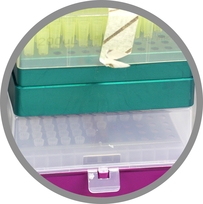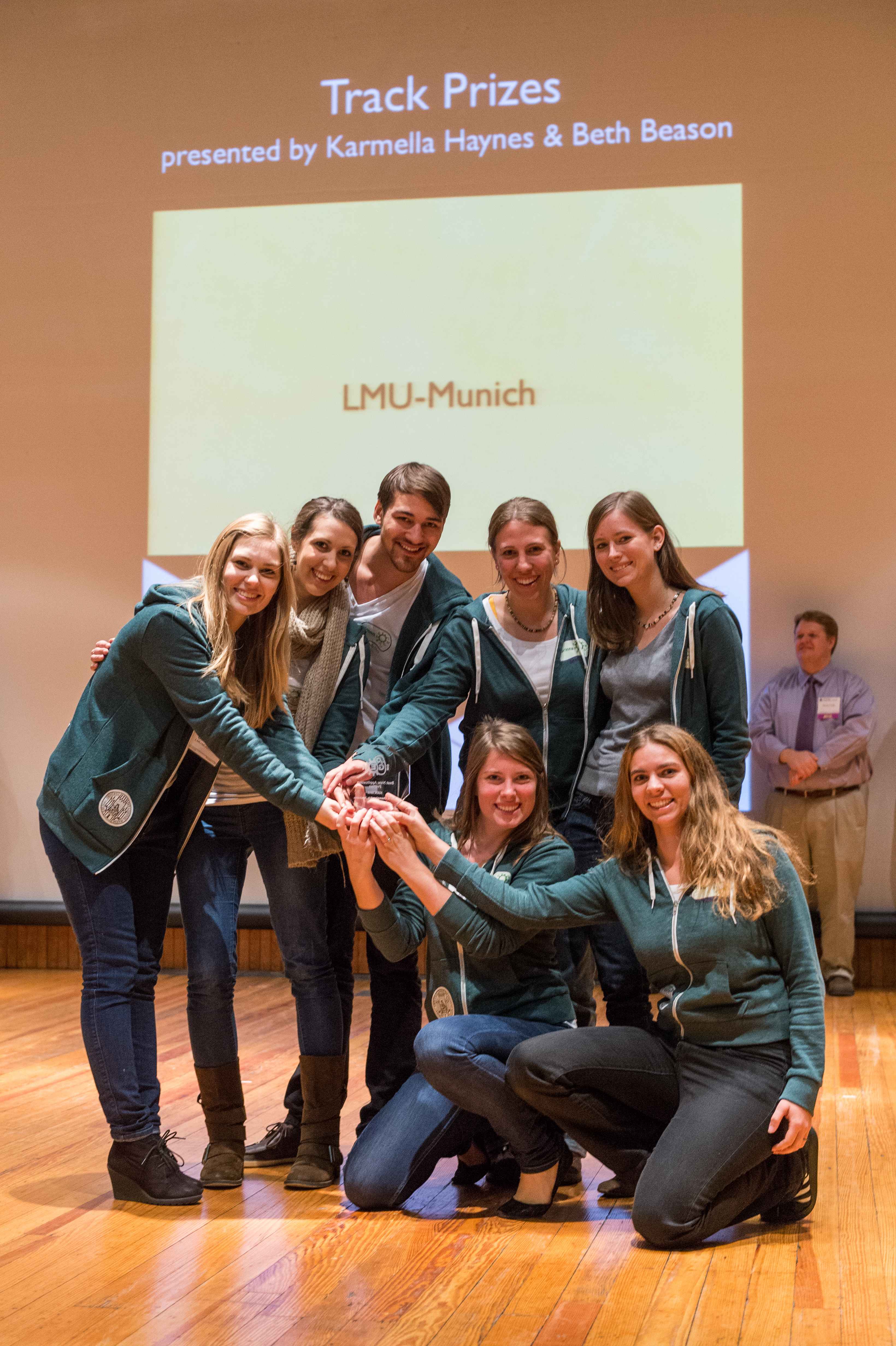Team:LMU-Munich/Lab Notebook/Protocols
From 2012.igem.org
| Line 15: | Line 15: | ||
===Protocols for the work with ''B. subtilis''=== | ===Protocols for the work with ''B. subtilis''=== | ||
</div> | </div> | ||
| - | |||
<div class="box"> | <div class="box"> | ||
| Line 22: | Line 21: | ||
This protocol gives the recipes for various media and the antibiotic concentrations used for ''B. subtilis''. | This protocol gives the recipes for various media and the antibiotic concentrations used for ''B. subtilis''. | ||
</div> | </div> | ||
| - | |||
<div class="box"> | <div class="box"> | ||
| Line 29: | Line 27: | ||
Protocol for the transformation of ''B. subtilis''. | Protocol for the transformation of ''B. subtilis''. | ||
</div> | </div> | ||
| - | |||
<div class="box"> | <div class="box"> | ||
| Line 36: | Line 33: | ||
A quick protocol for how to isolate genomic DNA from ''B. subtilis'' to transform it to a different strain. By this means, you can very easily combine different ''B. subtilis'' genotypes. Transformation of genomic DNA is much more efficient than plasmids. Isolated DNA with this protocol is not clean! | A quick protocol for how to isolate genomic DNA from ''B. subtilis'' to transform it to a different strain. By this means, you can very easily combine different ''B. subtilis'' genotypes. Transformation of genomic DNA is much more efficient than plasmids. Isolated DNA with this protocol is not clean! | ||
</div> | </div> | ||
| - | |||
<div class="box"> | <div class="box"> | ||
4. How to test integration of B. subtilis vectors | 4. How to test integration of B. subtilis vectors | ||
</div> | </div> | ||
| - | |||
<div class="box"> | <div class="box"> | ||
Revision as of 10:36, 15 September 2012

The LMU-Munich team is exuberantly happy about the great success at the World Championship Jamboree in Boston. Our project Beadzillus finished 4th and won the prize for the "Best Wiki" (with Slovenia) and "Best New Application Project".
[ more news ]

Protocols
On this page, we offer our unique protocols to the public.
Because Bacillus subtilis is our choice organism, we have focused on protocols specifically for Bacillus.
However below, you will also find other standard protocols we use.
Protocols for the work with B. subtilis
1. Media and components for Bacillus subtilis
This protocol gives the recipes for various media and the antibiotic concentrations used for B. subtilis.
2. Transformation of Bacillus subtilis
Protocol for the transformation of B. subtilis.
3. Isolation of chromosomal DNA from Bacillus subtilis for transformation
A quick protocol for how to isolate genomic DNA from B. subtilis to transform it to a different strain. By this means, you can very easily combine different B. subtilis genotypes. Transformation of genomic DNA is much more efficient than plasmids. Isolated DNA with this protocol is not clean!
4. How to test integration of B. subtilis vectors
5. Isolation of chromosomal DNA from Bacillus subtilis (for PCR....)
Isolation of pure genomic DNA from B. subtilis.
PCR protocol for long flanking homology PCR. You might need those PCR products for interrupting genes with resistance cassettes.
7. Clean deletion of genomic fragments in Bacillus subtilis
Protocol for the production of markerless gene deletions. You will need the [http://www.ncbi.nlm.nih.gov/pubmed/15528558 pMAD] plasmid. This method is more time consuming than inserting resistance cassettes but offers better cell perfomance.
Protocol to count efficiency of sporulation and germination.
9. Mikroskopie der Sporen
10. ß-Galactosidase Assay B. subtilis
Protocol how to measure lacZ gene activity in B. subtilis
11. Plate reader assay (can also be used with E. coli cells)
Other protocols we used
E. coli antibiotics concentrations
E.coli trafo
E.coli dreck-prep
Ligation, Verdau
Kompetente E.colis
lacZ assay in E.coli
(Proteinase K)
(Western Blot)
 "
"



